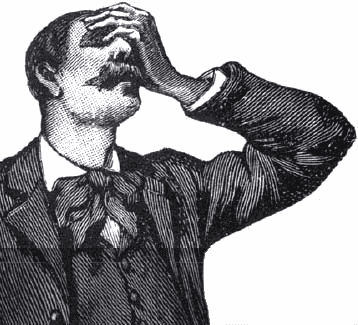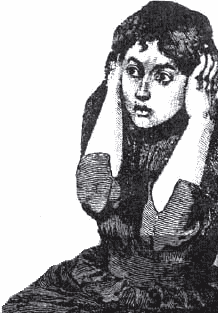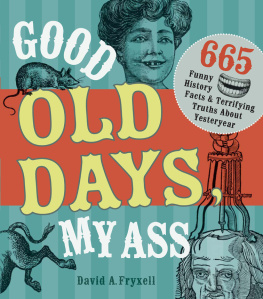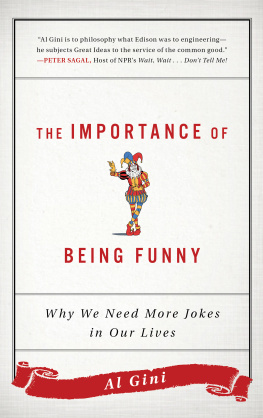GOOD
OLD DAYS,
MY ASS

by David A. Fryxell

CONTENTS
INTRODUCTION
Nostalgia Isnt What It Used to Be
PATENTS THAT SHOULD STILL BE PENDING
Failed and foolish inventions, and the rocky road to progress
ARE YOU REALLY GOING TO EAT THAT?
Food, not-so-glorious food
RATS AND OTHER FASHION ACCESSORIES
Style and beauty back then
HANG EM HIGH OR DRAWN AND QUARTERED?
Crime and punishment through the ages
FIRST, DO NO HARMOOPS!
Medicines painful past
CLEANLINESS IS NEXT TO IMPOSSIBLE
Sanitation and hygiene
HOME IS WHERE THE HORROR IS
The dirty truth about yesterdays houses
NICE WORK IF YOU CAN SURVIVE IT
Factories, farms and other death traps
NO WONDER THEY CALL IT THE DISMAL SCIENCE
Money and economics, the rich and (mostly) the poor
LOW SOCIETY
Fads, fallacies and fancies, holidays and living high on the hog
WE ARE NOT AMUSED
Sports, recreation and what our ancestors called fun
NO-GO
Transportation flops and detours
LIFE IN A STATE OF NATURE
Wild things and natural (and unnatural) disasters

Introduction

NOSTALGIA ISNT WHAT IT USED TO BE
W hen the economy is in the dumps, wars rage on without end, partisanship reigns in politics, and you cant even catch a plane without having to take your shoes off to get through security, its tempting to long for the good old days. Its not just the headlines that make those halcyon days of yesteryear seem rosier: We have Bieber Fever, while they had Elvis. We pay an ever-escalating fortune to see a doctor for five brusque minutes, while back then, the friendly family physician made house calls. We sit fuming in commuter traffic, whereas in the good old days, the streetcars took you wherever you wanted to go while folks sang Clang, clang, clang went the trolley.

Okay, maybe that last is a bit romanticized, but the Judy Garland movie about the 1904 Worlds Fair that gave us the trolley song, Meet Me in St. Louis, perfectly captures the idealized picture most of us have about the past. Back in those dreamy days gone by, our ancestors apparently had little more to worry about than which song to warble next while gathered in familial warmth around the piano. In the movies world of the Smith family, the greatest crises arise over whether one daughters boyfriend will finally get around to proposing and if Mr. Smith will move the family to New York, where hes gotten a better job. That would mean missing the fair! Even Katie the maid seems content, though she makes a mere twelve dollars a month.
The turn-of-the-century truth is a bit harsher. Those trolleys actually crawled along, despite the clanging of their bells, because good old-fashioned horse transportation wouldnt get out of their way. (The horses left behind smelly reminders of their passagemore than three million pounds a day in early-1900s New York City, where Mr. Smith wanted to relocate.) The gas lamps that give the world of Meet Me in St. Louis its warm glow were fountains of soot that left a grimy residue everywhere, blackened ceilings, corroded metal, and killed houseplants. They also had a nasty tendency to explode. Before the advent of meat inspection, theres no telling what was actually in the corned beef and cabbage that Katie the maid cooked up for the Smith family. Many of little daughter Tootie Smiths peers were working in cramped and dangerous mills and factories instead of enjoying an idyllic childhood; if child laborers got maimed for life, their parents might be paid one dollar in compensation.
Not to mention the prospect of spending summer in sultry St. Louis without air-conditioning.
But maybe the good old days werent quite so long ago. Surely the middle of the twentieth century was a better time (if you can overlook the sixty million deaths in the Second World War) than these troubled first years of the twenty-first century? Another song nicely, if ironically, expresses our contemporary longing for those good old daysthe theme from Norman Lears TV sit-com, All in the Family:

Boy, the way Glenn Miller played. Songs that made the hit parade.
Guys like us, we had it made. Those were the days.
Didnt need no welfare state. Everybody pulled his weight.
Gee, our old LaSalle ran great. Those were the days.
And you know who you were then, girls were girls and men were men.
Of course, songwriters Lee Adams and Charles Strouse puncture Archie Bunkers gauzy reminiscence with the next line: Mister, we could use a man like Herbert Hoover again. You mean the Herbert Hoover under whose presidency the Great Depression began? Well, maybe there were a few things wrong with the good old days, after all.
Indeed, when Archie was growing up in those Hooverville days, families like his were probably in bread lines. Even when the economy turned around, that old LaSalle had no airbags or seat belts, much less GPS navigation, and got less than ten miles a gallon; automotive fatality rates per mile were at least five times what they are today. Girls were girls, but women had little opportunity to do anything besides be a housewife in a mans world. The song goes on, People seemed to be content. Fifty dollars paid the rentbut back in 1944, when the United States average rent was in fact fifty dollars, the average annual wage was just $2,400 a year. And even peoples contentment was no doubt tempered by the constant fear of contracting polio, which peaked at 58,000 cases in the United States in 1952before the Salk polio vaccine was introduced in 1955.
Few of us would really want to back to the good old days of polio and typhoid fever, child labor, and adulterated food, much less a world without air-conditioning, color television, computers, and the Internet. But its easy to forget or gloss over just how rough our ancestors had it in those often-terrifying days of yesteryear.
The factoids and historical nuggets in this book aim to entertainingly remind readers how distorted our rose-tinted view of the past really is. While occasionally offering examples from ancient times, its focus is mostly on more recent good old days, especially in America. Since most people are at least dimly aware of the big-picture shortcomings of life back whenworld wars, slavery, mass slaughter, subjugation of indigenous peoplesthis book emphasizes instead the day-to-day horrors and inconveniences of ordinary life. Thats not to diminish the awfulness of wars and other atrocities, but rather to remind us that even when our forebears werent killing or enslaving each other, life was no picnic. Just getting by from breakfast to bedtime was a challenge through most of human history. The good old days for most people were a filthy, dangerous, exhausting slog simply to survive.













 Introduction
Introduction 

